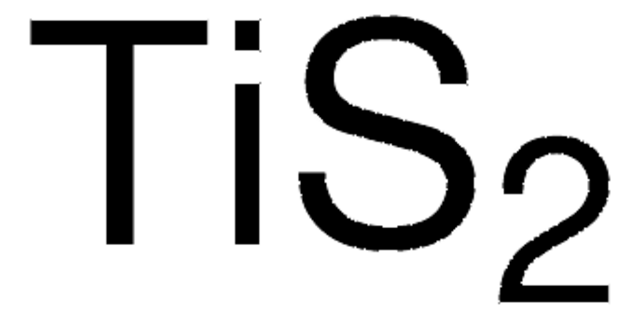366994
Titanium
powder, <45 μm avg. part. size, 99.98% trace metals basis
About This Item
Recommended Products
Quality Level
Assay
99.98% trace metals basis
form
powder
autoignition temp.
860 °F
resistivity
42.0 μΩ-cm, 20°C
avg. part. size
<45 μm
bp
3287 °C (lit.)
mp
1660 °C (lit.)
density
4.5 g/mL at 25 °C (lit.)
SMILES string
[Ti]
InChI
1S/Ti
InChI key
RTAQQCXQSZGOHL-UHFFFAOYSA-N
Related Categories
Application
Signal Word
Danger
Hazard Statements
Precautionary Statements
Hazard Classifications
Flam. Sol. 1
Storage Class Code
4.2 - Pyrophoric and self-heating hazardous materials
WGK
nwg
Flash Point(F)
Not applicable
Flash Point(C)
Not applicable
Personal Protective Equipment
Certificates of Analysis (COA)
Search for Certificates of Analysis (COA) by entering the products Lot/Batch Number. Lot and Batch Numbers can be found on a product’s label following the words ‘Lot’ or ‘Batch’.
Already Own This Product?
Find documentation for the products that you have recently purchased in the Document Library.
Customers Also Viewed
Articles
Mechanical alloying is a “brute force” method of affecting alloying and chemical reactions. The mixture of reactant powders and several balls are placed in the milling jar of a high-energy ball mill, for example, a shaker mill or a planetary mill.
Biomedical implants are essentially foreign substances within the human body that must survive many years’ exposure to demanding mechanical and physiological conditions. Despite these challenges, metal implants have been widely used to substitute for or rebuild hard tissues such as bones and teeth.
Our team of scientists has experience in all areas of research including Life Science, Material Science, Chemical Synthesis, Chromatography, Analytical and many others.
Contact Technical Service








